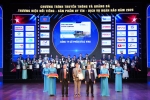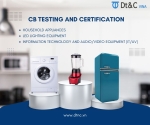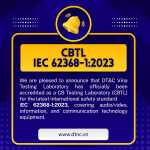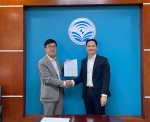Why do electric vehicles use Lithium ion battery technology?
That's because Lithium ion batteries will create safety when going deep into the cell wall of the vehicle, thereby limiting the possibility of fire and explosion compared to other materials such as oil and gasoline. Because gasoline / diesel vehicles continuously burn fuel in the engine cylinders, thereby creating a source of mechanical energy for the vehicle, leading to flammable and explosive. In contrast, the battery does not burn, so this risk is limited.
To ensure the quality of PINs, they need to be tested to see if their safety in use as well as their lifespan meet the standards set by each country.
Here are some common standards:
- EN15194:2017
- UN38.3
- UN-package
- UL
- CE
- FCC
- CB
- ROHS
| EN 15194:2017 | EN15194 certification is the first international comprehensive standard for EPAC: electric-assisted pedal bicycles and the electronics applications integrated into the bicycles, such as intelligent lithium-ion batteries, chargers, controllers, remotes, displays, etc. The products that passed the test of EN 15194 can prove that the products meet the international first-class level and have a positive effect on the development of the energy-saving market. The new standard for electric-assisted bicycles is far more complicated than the standard for EPAC previously. The new standard covers mechanical safety, electromagnetic compatibility (EMC), and electrical safety. This certification is acceptable in many European countries, such as Spain, the United Kingdom, Finland, Germany, France, Italy, and so on. |
| UN38.3 | In order to ensure the safety of battery air transportation and avoid unsafe incidents, Li-ion batteries must pass altitude simulation test, thermal test, vibration test, shock test, 55 °C external short circuits, crush test, overcharge, forced discharge, and packaging drop test before transportation. Products without the UN38.3 test qualification report can not be accepted. |
| UN-Package | UN3171 is a safety package for dangerous goods and UN3480 is especially for Li-ion batteries. If the product’s watt-hour exceeds the standard, it will belong as a dangerous good. |
| UL | This certification offers electrical and fire safety certification by examining the electrical drive system, battery system, and charger system combinations. UL certification covers: - E-bikes (typically sit-to-operate and over-the-road use) and pedal-assisted electric cycles. - The risk of electric shock during charging over the life of the product and other potential electrocution hazards. |
| CE | When LEV products transporting to the EU, the customs will check if there is CE certification along with your products for customs clearance, which it likes as a “Passport”! If an intelligent ecological power product exported to the EU without CE certification, immediately revoked or prohibited to be sold in the market once be found out. CE-certified products can be improved products self-competition, EU consumers rely more on CE-certified products. |
| CB | Batteries, cables and cords, capacitors as components, installation accessories and connection devices, switches for appliances, and other similar equipment are all covered under the CB Scheme. Presently, there are more than 50 CB Scheme member countries around the world, including European Union (EU) the Member States, the U.S., China, India, Korea, and Russia. Manufacturers using the CB Scheme can potentially gain access to every CB Scheme member country without the need for expensive, duplicate testing. |
| RoHS | The purpose of this standard is to eliminate lead, mercury, cadmium, hexavalent chromium, polybrominated biphenyls, and polybrominated diphenyl ethers in motor electronics, with a focus on lead levels not exceeding 1%. It is mainly used to standardize materials and process standards for electrical and electronic products, making it more conducive to human health and environmental protection. |
You can contact us via email: info@dtnc.vn or hotline: 0862619168 for more information.









![[MIC] Officially issued QCVN 134:2024/BTTTT - National technical regulation on specific absorption levels for handheld and body-worn radio devices according to Circular 19/2024/TT-BTTTT of Ministry of Information and Communications](https://cdn0577.cdn4s.com/thumbs/qcvn-134_thumb_150.jpg)



![[Latest] Circular 02/2024/TT-BTTTT regulating the List of potentially unsafe products and goods under the management responsibility of the Ministry of Information and Communications](https://cdn0577.cdn4s.com/thumbs/trang-huy-hieu-the-loai-logo-2_thumb_150.jpg)